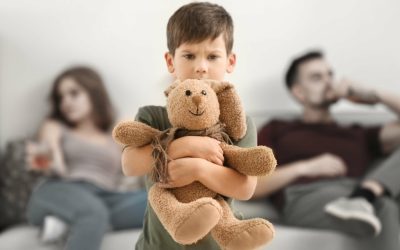With this approach, MAT helps stabilize the brain and nervous system, making it easier to quit alcohol without experiencing overwhelming anxiety or dangerous withdrawal symptoms. Continuing this process over time causes an imbalance of chemicals that your body signals as danger and stress leading to a panic attack. These symptoms happen when you experience a hangover as well, because your body has begun withdrawing from alcohol.
- The withdrawal symptoms, cravings, and emotional distress make quitting alcohol feel impossible for many people.
- There are many reasons that alcohol triggers this hangover anxiety, colloquially called “hangxiety.”
- Whether you have a mental health condition like anxiety or not, certain behaviors can signal that your relationship with alcohol could cause concern.
- What starts as a way to self-medicate stress and worry can turn into a dependency that makes anxiety even worse.
- Doctors and therapists highly recommend keeping a journal to help with stress management.
How can I tell if my alcohol consumption is affecting my anxiety?
Therapy programs offer a supportive and safe does alcohol cause anxiety space to explore drinking and anxiety and understand why you abuse alcohol. You can connect with your emotions and learn techniques to manage alcohol use and panic attacks. Alcohol use disorder treatment plans include inpatient and outpatient rehabs and detox programs.

FAQs About Alcohol and Anxiety

For some individuals, the effects of alcohol on anxiety can extend beyond the immediate drinking session, leading to anxiety symptoms that persist for days afterward. Some medications can be an effective option for treating anxiety from drinking or anxiety that causes you to drink. Always use anxiety medication exactly as prescribed and under the supervision of your healthcare provider — especially if you’re dealing with alcohol abuse. Professional mental health treatment through counseling or therapy for anxiety can provide personalized, dedicated attention and strategies to help https://flyfortune.in/2022/02/10/binge-drinking-definition-effects-causes-symptoms-2/ you manage anxiety.
- In extreme cases, it might be wise to consult a healthcare provider for intervention — they can determine whether therapy or medication might be appropriate for anxiety treatment options.
- This page explains more about anxiety, why alcohol can trigger it or make it worse, and steps you can take to feel better.
- It does depend on whether or not your anxiety is due to an underlying disorder that you’ve tried self-medicating with alcohol or if it’s alcohol-induced.
- In some cases, a person who drinks alcohol to relieve feelings of anxiety might end up drinking more because they expect alcohol to provide a certain amount of relief from their anxiety symptoms.
Should You Quit Drinking If You Have an Anxiety Disorder?
In fact, 50% of people receiving treatment for alcohol use disorder also live with an anxiety disorder. When drug addiction treatment people use alcohol for anxiety and stress management, the initial experience of relaxation stops occurring because the body becomes tolerant of the level of alcohol consumed. Not only are higher and higher quantities of alcohol needed to feel better, when the alcohol exits the bloodstream, it becomes increasingly difficult to manage anxiety. People become reliant on alcohol to help with anxiety, but their anxiety grows because of it. Do not hesitate to seek professional help when you notice adverse effects or onset of alcohol abuse disorders. Seeking anxiety and alcohol treatment ensures that you get the proper physical and mental support to help you recover.
